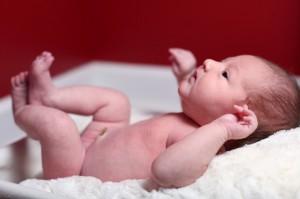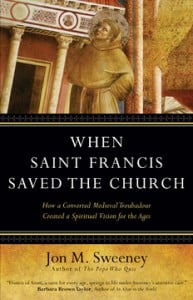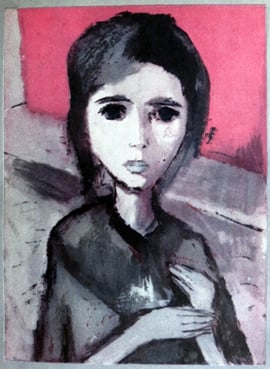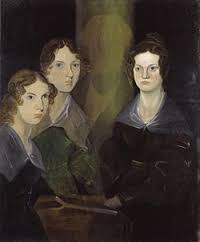
PBS recently aired an episode called To Walk Invisible, exploring the short, vaulting and tragic lives of the Brontë sisters: Charlotte — author if Jane Eyre; Emily — author of Wuthering Heights; and Anne — author of The Tenant of Wildfell Hall. The episode was as gripping as it was despairing, as these talented literary giants languished in a desolate home environment that crushed their spirits and their aspirations. Yet, by means of low whispers and darting glances, they began to cobble together a narrative of hope that perhaps their respective creative literary impulses had merit. Together they undertook the daring foray into seeking publication, under pseudonyms of course, given the disadvantages of gender. Their instincts proved true and the Brontës today stand out as among the most-read and beloved literary giants of the 19th century.
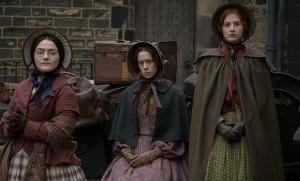
Any devotee of classic 19th-century literature will be drawn to compare the Brontës with Jane Austen. Charlotte Brontë was born the year before Austen died (1816, 1817, respectively), and their respective works stand in stark contrast. Austen’s works proved as successful as the Brontës’ would become, but with a narrative voice that stood apart distinctly from that of the sisters. The narrative voices in both Jane Eyre and Wuthering Heights, for example, were melancholic — the Brontës were masterful at expressing underlying gloom unsentimentally. Austen, on the other hand, wrote with subtle sarcasm and wit, fleetness of diction and a twinkle in the eye.
The happy and resolved endings of Austen’s novels make for another contrast. Charlotte Brontë’s ending Jane Eyre could be said to be “happy,” but not romantic. The happiness came at a great price and involved sacrifice, humiliation, tragedy and blood. Austen’s happy endings confounded Charlotte Brontë. In a letter she wrote to a reviewer of Jane Eyre she posed the question: “Why do you like this Miss Austen so very much? I am puzzled on that point.” She added, “I had not seen Pride and Prejudice till I read the sentence of yours and then I got the book. And what did I find? An accurate daguerreotyped portrait of a commonplace face, a carefully fenced, highly cultivated garden, with neat borders and delicate flowers, but no glance of a bright, vivid, physiogamy, no open country, no fresh air, no blue hill, no bonny beck. I should hardly like to live with her ladies and gentlemen, in their elegant but confined houses. . . . Miss Austen is only shrewd and observant.” Bronte was at loss as to why Austen’s novels were so popular. She felt they lacked passion and authentic emotion.
The difference between Charlotte Brontë’s melancholic narrative and Jane Austen’s satirical one might be accounted for by dint of the crushing losses Brontë suffered. She experienced an avalanche of personal losses during the course of her short life. These are the losses include:
- Her mother, Maria Bronte, died in 1821: Charlotte was 5
- Her oldest sister, Maria, died in 1825 (age 12): Charlotte was 9
- Her next sister, Elizabeth died a month later (age 11): Still 9
- Her brother Patrick died (age 29) in 1848; Charlotte was 32.
- Her sister Emily (of Wuthering Heights) died a few months later (age 29); Charlotte was 32.
- Her younger sister, Anne, died five months after Emily, in 1849 (age 27): Charlotte, 33.
Mercifully, Charlotte herself died in 1855, age 38.
Her first biographer, Elizabeth Gaskell, who knew Charlotte, wrote of her: “I am struck afresh by the absence of hope, which formed such a strong characteristic in Charlotte . . . . Miss Brontë never dared to allow herself to look forward with hope . . . . She had no confidence in the future; and I though, when I heard of the sorrowful years she passed through, that it had been this pressure of grief which had crushed all the buoyancy of expectation out of her.”
Brontë did what she could to reconcile life ravages with the possibility of hope. Austen did the same thing, but without the multiple personal devastations. If one reads Jane Eyre and then Pride and Prejudice the reader will glean a similar subtext of both: there is meaning behind losses, and what is true and good in the end will find us.
Brontë wrote (in Jane Eyre): “But I tell you — and you may mark my words — you will come some day to a craggy pass of the channel, where the whole of life’s stream will be broken up into whirl and tumult, foam and noise: either you will be dashed to atoms on crag points, or lifted up and born on by some master wave into a calmer current.”


